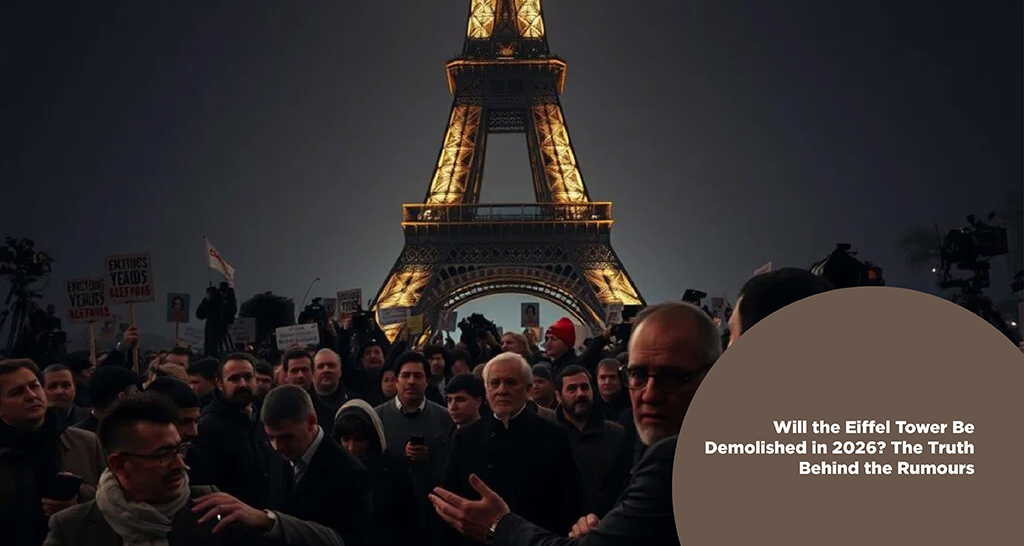In recent weeks, speculation has surged online claiming that the Eiffel Tower could be demolished in 2026. The rumours have left tourists and Parisians puzzled, especially as the monument remains closed since October 2 due to ongoing labour unrest. However, a closer look shows that the demolition claims are false and have no official basis.
The Eiffel Tower, one of the most recognized landmarks in the world, has faced temporary closures over the years mostly due to strikes, maintenance work, or security issues. Its current shutdown stems from disputes over staff working conditions and the need for extensive maintenance, not from any plan to dismantle or demolish the iconic structure.
Officials responsible for the monument’s management have categorically denied any demolition plans. They clarified that while the tower requires frequent repainting, safety checks, and modernization work, these are part of regular upkeep that ensures its long-term preservation not preparations for its removal.
The demolition theory appears to have spread on social media, fuelled by misunderstandings about the tower’s maintenance schedule and discussions about safety upgrades. With nearly 135 years of history, the Eiffel Tower demands periodic structural assessments and repainting cycles every seven years. These activities are routine in heritage conservation, but have sometimes been misinterpreted by online users as signs of impending demolition.
Experts note that the idea of tearing down the Eiffel Tower is not only implausible but legally and culturally impossible. The monument is protected under French heritage laws as a national historic site. Any move to demolish it would face immediate legal barriers and intense international backlash. Moreover, the Eiffel Tower is a vital contributor to France’s tourism industry, drawing nearly seven million visitors annually before its recent closure.
From a logistical perspective, dismantling a 330-meter iron structure in the heart of Paris would involve enormous technical challenges and costs. Engineers estimate that such a task would take years, disrupt the surrounding area, and contradict France’s commitment to preserving cultural landmarks.
What is planned for 2026 is a renewed phase of structural maintenance and repainting, part of a long-term preservation program that has been ongoing since the 1980s. These projects aim to combat corrosion, improve visitor safety, and ensure the tower’s continued strength for decades to come.
Cultural historians also emphasize that the Eiffel Tower holds a unique place in global heritage a testament to 19th-century engineering, French artistry, and national pride. The monument, originally built for the 1889 World’s Fair, has survived wars, political upheavals, and changing eras. Its preservation remains a point of pride for Paris, not a subject of debate for demolition.
In summary, the rumours suggesting that the Eiffel Tower will be demolished in 2026 are entirely baseless. The current closure is temporary, related to maintenance and staff issues, and the structure’s future remains secure. Far from being destroyed, the Eiffel Tower is undergoing another chapter of care ensuring that it continues to stand tall over Paris for generations to come.






